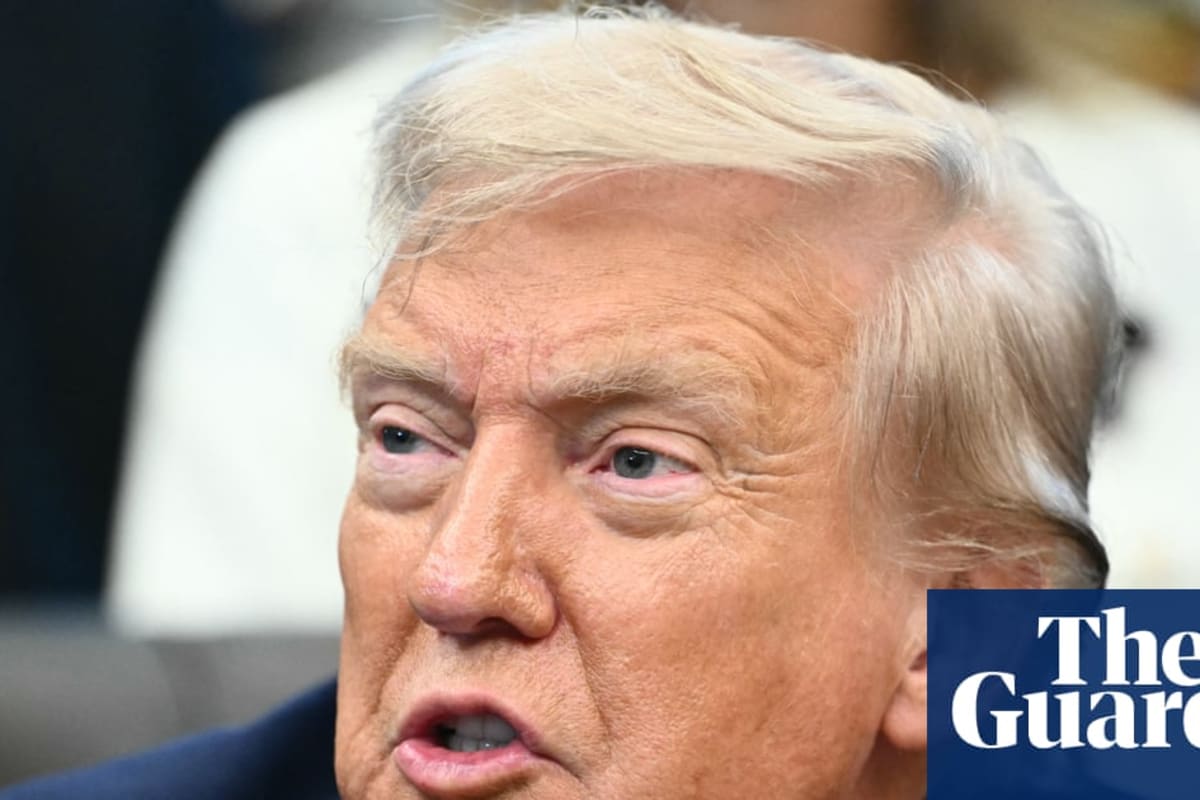Trump Threatens Tech Tariffs: Global Impact?

Former US President Donald Trump's recent threat to impose tariffs and export restrictions on countries perceived as unfairly targeting American tech companies has sent ripples through the global economic landscape The announcement, made via his social media platform, Truth Social, specifically targets nations implementing or considering digital services taxes (DSTs) or regulations deemed discriminatory against US tech giants such as Google (Alphabet Inc ), Meta (Facebook), Amazon, and Apple This move has reignited a long-simmering debate over the taxation of multinational technology corporations and the sovereignty of nations in regulating their digital economies Trump's statement, while characteristically blunt, underscores a significant and ongoing tension between nations seeking to assert their fiscal authority and multinational technology corporations often accused of minimizing their tax liabilities Many countries argue that these companies, with their vast global reach and often-substantial profits derived from within their borders, should contribute a fairer share to national tax revenues This sentiment has fueled the rise of DSTs in various countries, including those within the European Union (EU), the United Kingdom (UK), and increasingly, nations in Southeast Asia These taxes typically focus on the revenue generated by these tech companies within a specific country, rather than relying solely on their physical presence or profits declared in low-tax jurisdictions, a practice often criticized as aggressive tax avoidance The potential impact of Trump's threatened tariffs is far-reaching and could trigger a global trade dispute While primarily aimed at the EU and the UK, the consequences could extend globally, particularly impacting countries with burgeoning digital economies For Southeast Asian nations, the implications are multifaceted and potentially destabilizing Several countries in the region, including Indonesia, Thailand, and Malaysia, are actively considering or have already implemented their own DSTs or regulations governing digital businesses These efforts are driven by the urgent need to increase tax revenue to fund national development initiatives and to regulate the rapidly growing digital economy within their borders The threat of US tariffs, however, introduces a significant risk to their economic policies and could undermine their efforts to level the playing field for local businesses Specifically for Southeast Asia, the ramifications could include: Increased Costs for Consumers: Tariffs on US tech products, such as smartphones, laptops, and cloud services, could lead to higher prices for consumers, disproportionately affecting lower-income populations This could impact access to technology, widen the digital divide, and ultimately hinder economic growth Retaliatory Measures: Southeast Asian nations, feeling pressured and unfairly targeted, may retaliate with their own tariffs or trade restrictions against US goods, escalating the trade conflict and harming bilateral economic ties This could lead to a tit-for-tat cycle of protectionism, harming businesses and consumers on both sides Uncertainty for Businesses: The uncertainty surrounding the threat of tariffs creates a volatile business environment, making it challenging for both US and Southeast Asian tech companies to plan for long-term growth and investment This could deter foreign direct investment (FDI) and stifle innovation Impact on Digital Transformation: Southeast Asia is heavily invested in its digital transformation, with ambitious plans to build smart cities, promote e-commerce, and develop a skilled digital workforce The threat of tariffs could hinder the development of the region's digital infrastructure, slow its integration into the global digital economy, and jeopardize its competitiveness Geopolitical Implications: Trump's action could be interpreted as a move to assert US dominance in the tech sector and exert pressure on countries that seek to regulate the power of these global giants This could potentially exacerbate existing geopolitical tensions, particularly in a region where China is also vying for influence Erosion of Trust in the Multilateral System: The unilateral imposition of tariffs undermines the principles of free and fair trade enshrined in the World Trade Organization (WTO) and could erode trust in the multilateral system, leading to a more fragmented and unstable global economic order It's crucial to consider a balanced perspective While the concerns raised by countries about the tax contributions of US tech companies are valid and warrant serious consideration, a retaliatory tariff war would be detrimental to global economic stability and could trigger a recession This situation underscores the urgent need for international cooperation to develop fair and equitable tax frameworks for the digital economy, frameworks that address the unique challenges posed by cross-border digital services and the shifting nature of value creation in the 21st century The way forward requires robust international dialogue and negotiation, ideally under the auspices of multilateral organizations Organizations like the Organisation for Economic Co-operation and Development (OECD) are already working on initiatives to develop a global consensus on taxing the digital economy, commonly referred to as Pillar One and Pillar Two of the OECD/G20 Inclusive Framework on Base Erosion and Profit Shifting (BEPS) The success of these efforts is crucial to mitigate the potential negative consequences of Trump's threat and ensure a stable and prosperous future for the global digital landscape, especially within the dynamic economies of Southeast Asia Failure to reach a consensus could lead to a proliferation of unilateral measures, further fragmenting the global tax system and increasing the risk of trade wars The potential economic consequences for Southeast Asia are significant and warrant close monitoring by governments, businesses, and international organizations The region's rapid digital growth makes it particularly vulnerable to disruptions in the global tech market Furthermore, the region's reliance on US tech companies for essential services, such as cloud computing and software, adds another layer of complexity Further analysis and proactive international cooperation are essential to navigate these challenges and ensure a fair and equitable outcome for all stakeholders, promoting sustainable and inclusive growth in the digital age
